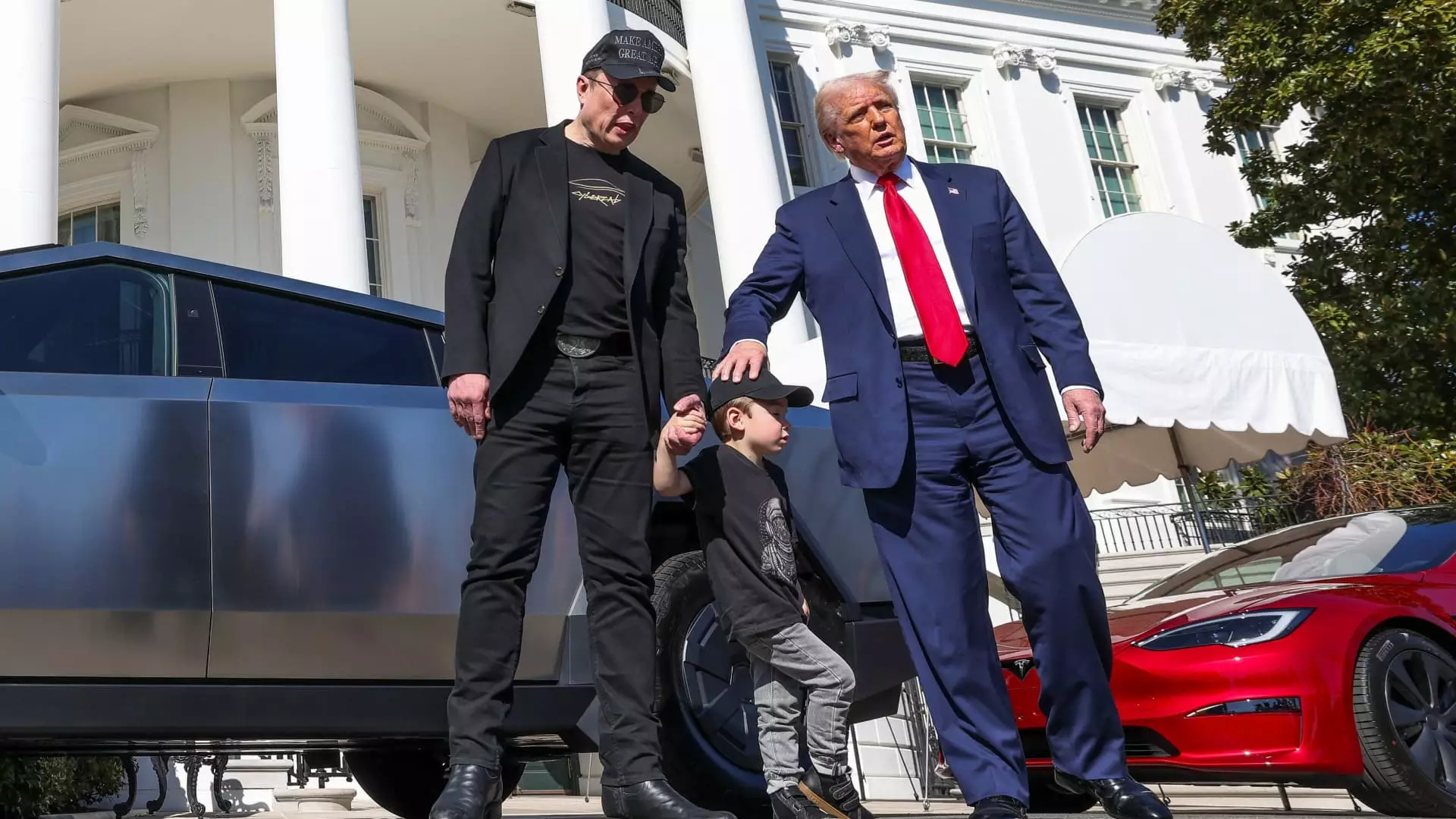In recent months, the specter of tariffs has loomed large over the American manufacturing sector, challenging companies in various industries, notably automotive. Elon Musk, the CEO of Tesla, addressed these challenges during a recent earnings call, shedding light on his company’s strategy amid rising uncertainties stemming from tariff policies. While he expressed a disdain for high and unpredictable tariffs, Musk made it clear that the ultimate decision lies in the hands of the U.S. president. This tug-of-war over trade policy isn’t just a point of contention for Musk; it represents a broader struggle facing U.S. manufacturers as they navigate fluctuating market dynamics.
Tesla’s Unique Position in the Tariff War
Tesla prides itself on having established localized supply chains across North America, Europe, and China. Musk indicated that this strategic positioning has shielded Tesla more effectively than many of its competitors from the adverse effects of tariffs. With many U.S. automakers vulnerable to the repercussions of increasing trade barriers, Tesla stands out as a resilient player, minimizing the disruptive impact of tariffs on its operations. Despite this relative advantage, Tesla recently reported alarming declines in both automotive revenue and net income, signaling that even the most strategically positioned companies are not immune to economic pressures.
Musk’s Contradictions and Opinions on Tariffs
One intriguing aspect of Musk’s comments revolves around his somewhat contradictory relationship with the Trump administration on trade issues. While he has often been regarded as a close advisor to former President Trump, Musk has publicly criticized Trump’s trade advisor. His opinion that lower and more predictable tariffs are essential for fostering a healthier economic environment is valid, highlighting how personal philosophies can clash with political realities. Musk’s nuanced stance—advocating for free trade while simultaneously calling out predatory practices—serves as a reminder that economic policy can often be a double-edged sword.
Impacts on Tesla’s Energy Sector
One area where Musk acknowledges a more pronounced effect of tariffs is Tesla’s energy business. The company’s reliance on lithium iron phosphate battery cells sourced from China illustrates the intricate web of global supply chains that modern companies navigate. Musk’s assertion that tariffs disproportionately affect this sector is critical: not only do they hamper operations, but they also risk slowing the broader transition to sustainable energy. As Tesla moves to establish domestic manufacturing of these battery cells, the challenges ahead are significant, underscoring the importance of a stable and supportive trade environment for advancing renewable technology.
Beyond Tariffs: The Future of Tesla’s Supply Chains
Musk’s vision for Tesla includes a commitment to decentralizing its supply chains. He has acknowledged the need to diversify sources while simultaneously working on local production capabilities. The tireless pursuit of building a vertically integrated company seems promising; however, Musk candidly admits that relying on international suppliers persists as a challenge. Innovations, such as lithium refineries in Texas, signal significant progress, yet Musk humorously notes that the company is far from self-sufficient. The journey towards total independence involves not just manufacturing capabilities, but also long-term investments in emerging technologies and sustainable practices.
The Broader Economic Implications
Musk’s insights during the earnings call serve as a microcosm of broader economic implications for the automotive industry and supply chain logistics. The challenges posed by tariffs are not merely confined to individual companies, but resonate throughout the economy. The ongoing discourse about trade policy will dictate how industries evolve, emphasizing the need for adaptable strategies. Musk’s comments invite further examination of how tariffs impact market positioning, innovation levels, and long-term sustainability of businesses navigating the complexities of global trade.
In this climate of uncertainty, the road ahead for Tesla—like many automotive giants—remains unclear. However, Musk’s commitment to innovation, sustainability, and proactive supply chain management sets a precedent for how companies might effectively weather economic storms in an increasingly interconnected world. While tariffs remain a pressing issue, the discussions they spur may ultimately lead to more informed economic policies that prioritize resilience and growth.

